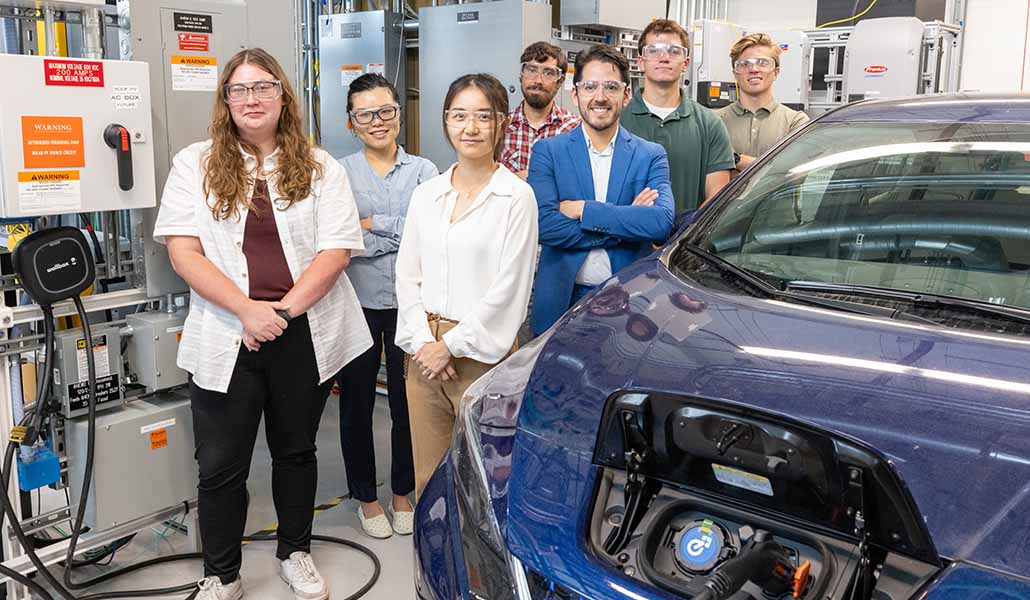Workforce Development Affiliate Programs
Workforce development affiliate programs are additional pathways for students, faculty, and others to work within NLR to further their knowledge of and careers in innovative energy technologies.

Computational Science Graduate Fellowship
The U.S. Department of Energy Computational Science Graduate Fellowship provides opportunities for students pursuing doctoral degrees in fields that use high-performance computing to solve complex science and engineering problems.
Growth Sector's STEM Core
Growth Sector's STEM Core aims to build student engagement and interest in science, technology, engineering, and math (STEM)-based careers through a yearlong, academic program that accelerates the completion of developmental and college-level math courses; emphasizes the real-world context in STEM curricula and instruction; creates a cohort-based learning community for students; provides intensive student supports; and provides paid internship opportunities at leading STEM employers.
Jefferson County Business and Workforce Center
The Jefferson County Business and Workforce Center connects qualified job seekers with businesses through innovative work-based learning programs, job fairs, and more.
Oak Ridge Institute for Science and Education-Managed Affiliate Programs
Oak Ridge Institute for Science and Education (ORISE) manages programs that pair students, recent graduates, postdocs, and faculty with programs that help grow their STEM expertise and experience. Federal agencies for which ORISE manages programs include the U.S. Department of Energy, U.S. Department of Health and Human Services, U.S. Department of Defense, and U.S. Department of Homeland Security. Most programs are 10-week, full-time summer internships directly paid through ORISE and subject to its regulations and restraints. ORISE also administers benefits.
STEM Teacher and Research Program
California Polytechnic State University's STEM Teacher and Research program provides aspiring K–12 STEM teachers with opportunities to do authentic research while helping them translate their research experience into classroom practice.
SkillBridge
The U.S. Department of Defense's SkillBridge program is intended to help service members gain valuable civilian work experience through specific industry internships, training, or apprenticeships during the last 180 days of service. SkillBridge connects transitioning service members with industry partners to real-world job experiences. Email NLR's SkillBridge team for more details.
Share
Last Updated Dec. 5, 2025
